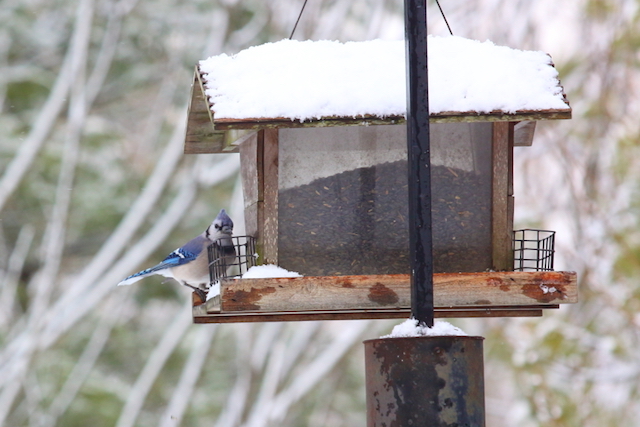| ||||||||||
Dr. Ronald P. Rogers CHIROPRACTOR Support for your body's natural healing capabilities 270-384-5554 Click here for details 


Columbia Gas Dept. GAS LEAK or GAS SMELL Contact Numbers 24 hrs/ 365 days 270-384-2006 or 9-1-1 Call before you dig Visit ColumbiaMagazine's Directory of Churches Addresses, times, phone numbers and more for churches in Adair County Find Great Stuff in ColumbiaMagazine's Classified Ads Antiques, Help Wanted, Autos, Real Estate, Legal Notices, More... 
|
Keeping bird feeders clean reduces risk of salmonella outbreaks Kentucky Department of Fish and Wildlife Frankfort, KY - Kentuckians are encouraged to pay special attention to their backyard bird feeders after recent tests found salmonella in several deceased songbirds collected from Bullitt, Calloway and Washington counties. In response to recent reports from the public, the Department of Fish and Wildlife Resources collected several deceased pine siskins from the counties and submitted them to the Southeastern Cooperative Wildlife Disease Study lab in Athens, Georgia. Tests confirmed the presence of salmonella in several of the birds. "We are experiencing a higher than normal incidence of salmonella outbreaks at bird feeders this year," said Dr. Christine Casey, state wildlife veterinarian for the Department of Fish and Wildlife Resources. "This has also been observed elsewhere in the United States. We would like to remind the public to clean feeders regularly to avoid spreading salmonella and other germs. Cleaning feeders frequently is always important when feeding birds. Feeders should be cleaned at least every two weeks with a 5- to 10-percent bleach solution and rinsed to remove any of the solution." If you notice sick or dead birds by your feeder, Kentucky Fish and Wildlife recommends:
Salmonella can be transmitted from animals to people. However, the risk of infection can be drastically reduced with good hygiene practices. Care should be taken to avoid contact with bird droppings when cleaning feeders. Wear gloves and wash your hands frequently. Additionally, immunocompromised individuals tend to be more susceptible to these infections and should avoid handling contaminated feeders. If you discover multiple deceased birds at your feeder after implementing the above recommendations for decontaminating your feeders, please contact Kentucky Fish and Wildlife by phone at 1-800-858-1549 or by email at info.center@ky.gov. This story was posted on 2021-03-09 08:18:54
Printable: this page is now automatically formatted for printing.
Have comments or corrections for this story? Use our contact form and let us know.
More articles from topic Ky Afield Outdoors:
KY Afield Video: Live Spring Fishing Q&A Show KY Afield Video: February 13, 2021 Full Show KY Afield Video: February 6, 2021 Full Show KY Afield Video: January 30, 2021 Full Show KY Afield Video: January 23, 2021 Full Show KY Afield Video: January 16, 2021 Full Show KY Afield Video: January 2, 2021 Full Show KY Afield Video: Best of 2020 Part 2/2 KY Afield Video: December 19, 2020 Full Show: Best of 2020 Pt 1 Prepping for waterfowl season on the water View even more articles in topic Ky Afield Outdoors |



|
||||||||
|
| ||||||||||
|
Quick Links to Popular Features
Looking for a story or picture? Try our Photo Archive or our Stories Archive for all the information that's appeared on ColumbiaMagazine.com. | ||||||||||
|
Contact us: Columbia Magazine and columbiamagazine.com are published by Linda Waggener and Pen Waggener, PO Box 906, Columbia, KY 42728. Please use our contact page, or send questions about technical issues with this site to webmaster@columbiamagazine.com. All logos and trademarks used on this site are property of their respective owners. All comments remain the property and responsibility of their posters, all articles and photos remain the property of their creators, and all the rest is copyright 1995-Present by Columbia Magazine. Privacy policy: use of this site requires no sharing of information. Voluntarily shared information may be published and made available to the public on this site and/or stored electronically. Anonymous submissions will be subject to additional verification. Cookies are not required to use our site. However, if you have cookies enabled in your web browser, some of our advertisers may use cookies for interest-based advertising across multiple domains. For more information about third-party advertising, visit the NAI web privacy site.
| ||||||||||

















































